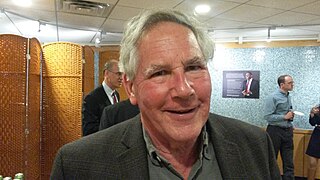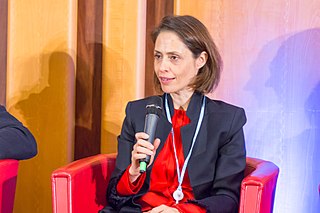Bioethics is both a field of study and professional practice, interested in ethical issues related to health, including those emerging from advances in biology, medicine, and technologies. It proposes the discussion about moral discernment in society and it is often related to medical policy and practice, but also to broader questions as environment, well-being and public health. Bioethics is concerned with the ethical questions that arise in the relationships among life sciences, biotechnology, medicine, politics, law, theology and philosophy. It includes the study of values relating to primary care, other branches of medicine, ethical education in science, animal, and environmental ethics, and public health.
Medical ethics is an applied branch of ethics which analyzes the practice of clinical medicine and related scientific research. Medical ethics is based on a set of values that professionals can refer to in the case of any confusion or conflict. These values include the respect for autonomy, non-maleficence, beneficence, and justice. Such tenets may allow doctors, care providers, and families to create a treatment plan and work towards the same common goal. These four values are not ranked in order of importance or relevance and they all encompass values pertaining to medical ethics. However, a conflict may arise leading to the need for hierarchy in an ethical system, such that some moral elements overrule others with the purpose of applying the best moral judgement to a difficult medical situation. Medical ethics is particularly relevant in decisions regarding involuntary treatment and involuntary commitment.

Arthur L. Caplan is an American ethicist and professor of bioethics at New York University Grossman School of Medicine.

The Council for International Organizations of Medical Sciences (CIOMS) is an international non-governmental organization of 40 international, national, and associate member groups representing the biomedical science community. It was jointly established by the World Health Organization (WHO) and United Nations Educational, Scientific and Cultural Organization (UNESCO) in 1949 as a successor to the International Medical Congress that organized 17 conferences from 1867 until the 1913 outbreak of World War One.
Albert R. Jonsen was one of the founders of the field of Bioethics. He was Emeritus Professor of Ethics in Medicine at the University of Washington, School of Medicine, where he was Chairman of the Department of Medical History and Ethics from 1987 to 1999. After retiring from UW, he returned to San Francisco, where he co-founded the Program in Medicine and Human Values at Sutter Health's California Pacific Medical Center in 2003.
Barron H. Lerner is an American member of the faculty at the New York University Langone School of Medicine. He received his M.D. from Columbia in 1986 and his Ph.D. in history from the University of Washington in 1996. In addition to his research, Lerner practices internal medicine and teaches medical ethics and the history of medicine.

Daniel Isaac Wikler is an American public health educator, philosopher, and medical ethicist. He is currently the Mary B. Saltonstall Professor of Population Ethics and Professor of Ethics and Population Health in the Department of Global Health and Population of the Harvard T.H. Chan School of Public Health in Boston. He is Director and a core faculty member in the Harvard Program in Ethics and Health (PEH). His current research interests are ethical issues in population and international health, including the allocation of health resources, health research involving human subjects, organ transplant ethics, and ethical dilemmas arising in public health practice, and he teaches several courses each year. He is a fellow of the Hastings Center, an independent bioethics research institution.

Norman Daniels is an American political philosopher and philosopher of science, political theorist, ethicist, and bioethicist at Harvard University and the Harvard T.H. Chan School of Public Health. Before his career at Harvard, Daniels had built his career as a medical ethicist at Tufts University in Medford, Massachusetts, and at Tufts University School of Medicine, also in Boston. He also developed the concept of accountability for reasonableness with James Sabin, an ethics framework used to challenge the healthcare resource allocation in the 1990s.
Human subject research legislation in the United States can be traced to the early 20th century. Human subject research in the United States was mostly unregulated until the 20th century, as it was throughout the world, until the establishment of various governmental and professional regulations and codes of ethics. Notable – and in some cases, notorious – human subject experiments performed in the US include the Tuskegee syphilis experiment, human radiation experiments, the Milgram obedience experiment and Stanford prison experiments and Project MKULTRA. With growing public awareness of such experimentation, and the evolution of professional ethical standards, such research became regulated by various legislation, most notably, those that introduced and then empowered the institutional review boards.
Robert Klitzman is an American psychiatrist and bioethicist.
Jamie Lindemann Nelson is a philosophy professor and bioethicist currently teaching at Michigan State University. Nelson earned her doctorate in philosophy at the State University of New York at Buffalo in 1980 and taught at the University of Tennessee at Knoxville and St. John's University before moving to Michigan State University. In addition, Nelson was an Associate for Ethical Studies at The Hastings Center from 1990–95 and is both a Woodrow Wilson Visiting Fellow and a Fellow of the Hastings Center. Nelson usually teaches courses on biomedical ethics, ethical theory, moral psychology, feminist theory, and philosophy of language.
The MacLean Center for Clinical Medical Ethics, founded in 1981, is a non-profit clinical medical ethics research institute based in the United States. Founded by its director, Mark Siegler, the MacLean Center for Clinical Medical Ethics aims to improve patient care and outcomes by promoting research in clinical medical ethics by educating physicians, nurses, and other health care professionals and by helping University of Chicago Medicine patients, families, and health care providers identify and resolve ethical dilemmas. The center has trained over 410 fellows, including many physicians, attorneys, PhDs and bioethicists.

Mildred Z. Solomon is an American bioethics researcher.
Barry R. Bloom is Harvard University Distinguished Service Professor and Joan L. and Julius H. Jacobson Professor of Public Health in the Department of Immunology and Infectious Diseases and Department of Global Health and Population in the Harvard T.H. Chan School of Public Health in Boston, where he served as dean of the faculty from 1998 through December 31, 2008.

Abha Saxena is a bioethicist and global health specialist. She was trained as an anesthesiologist, and practiced medicine for several years before moving to the World Health Organization in 2001. There she was heavily involved in bioethics work, coordinating the WHO Research ethics committee and Global Health Ethics Team. Since 2018, Saxena has been a visiting professor at the University of Geneva and a Senior Bioethics adviser at the INCLEN Trust International.

Christine I. Mitchell is an American filmmaker and bioethicist and until her retirement in September 2022, the executive director of the Center for Bioethics at Harvard Medical School (HMS).
A human challenge study, also called a challenge trial or controlled human infection model (CHIM), is a type of clinical trial for a vaccine or other pharmaceutical involving the intentional exposure of the test subject to the condition tested. Human challenge studies may be ethically controversial because they involve exposing test subjects to dangers beyond those posed by potential side effects of the substance being tested. Controlled human infection studies are also used to study viruses and immune responses.

Vardit Ravitsky is a bioethicist, researcher, and author. She is president and CEO of The Hastings Center, a full professor at the University of Montreal, and a senior lecturer on Global Health and Social Medicine at Harvard Medical School. She is immediate-past president and current vice-president of the International Association of Bioethics, and the director of Ethics and Health at the Center for Research on Ethics. She is a Fellow of the Pierre Elliott Trudeau Foundation, where she chaired the COVID-19 Impact Committee. She is also Fellow of The Hastings Center and of the Canadian Academy of Health Sciences.

Eftychia ("Effy") Vayena is a Greek and Swiss bioethicist. Since 2017 she has held the position of chair of bioethics at the Swiss Institute of Technology in Zurich, ETH Zurich. She is an elected member of the Swiss Academy of Medical Sciences.
1Day Sooner is a nonprofit that advocates for people who want to participate in medical research, in particular human challenge trials. 1Day Sooner began in March 2020 in response to the Covid-19 pandemic, organizing people willing to volunteer in human challenge trials as a means to speed development of vaccines against the disease. 1Day Sooner's advocacy for Covid-19 challenge trials was met with both support and opposition among the public, scientists, and bioethicists. Covid-19 challenge trials were ultimately implemented in the United Kingdom.









